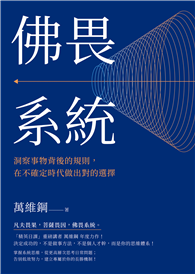The best alternative to chemical control is often seen as being biological control - the introduction of natural enemies in areas where foreign pests become abundant. However, biological control alone is not always sufficient to maintain pest populations under a tolerable level; and it is necessary to learn how to make it compatible with other methods of control, and in particular with chemicals, in integrated control programs. Data on these important aspects was collected and elaborated over a period of seven to eight years and synthesized in this volume, which was originally published in 1976. The data relates to five groups of species recognized as main agricultural pests over vast areas of developing countries. It shows how complex the interrelationships between microorganisms are how much research effort has to be invested in such disciplines as systematics, physiology, ethnology and ecology for their understanding.
| FindBook |
有 1 項符合
Studies in Biological Control的圖書 |
 |
Studies in Biological Control 作者:Delucci 出版社:Cambridge University Press 出版日期:2011-06-09 語言:英文 規格:平裝 / 322頁 / 22.9 x 15.2 x 1.8 cm / 普通級 |
| 圖書館借閱 |
| 國家圖書館 | 全國圖書書目資訊網 | 國立公共資訊圖書館 | 電子書服務平台 | MetaCat 跨館整合查詢 |
| 臺北市立圖書館 | 新北市立圖書館 | 基隆市公共圖書館 | 桃園市立圖書館 | 新竹縣公共圖書館 |
| 苗栗縣立圖書館 | 臺中市立圖書館 | 彰化縣公共圖書館 | 南投縣文化局 | 雲林縣公共圖書館 |
| 嘉義縣圖書館 | 臺南市立圖書館 | 高雄市立圖書館 | 屏東縣公共圖書館 | 宜蘭縣公共圖書館 |
| 花蓮縣文化局 | 臺東縣文化處 |
|
|
圖書介紹 - 資料來源:博客來 評分:
圖書名稱:Studies in Biological Control
|











